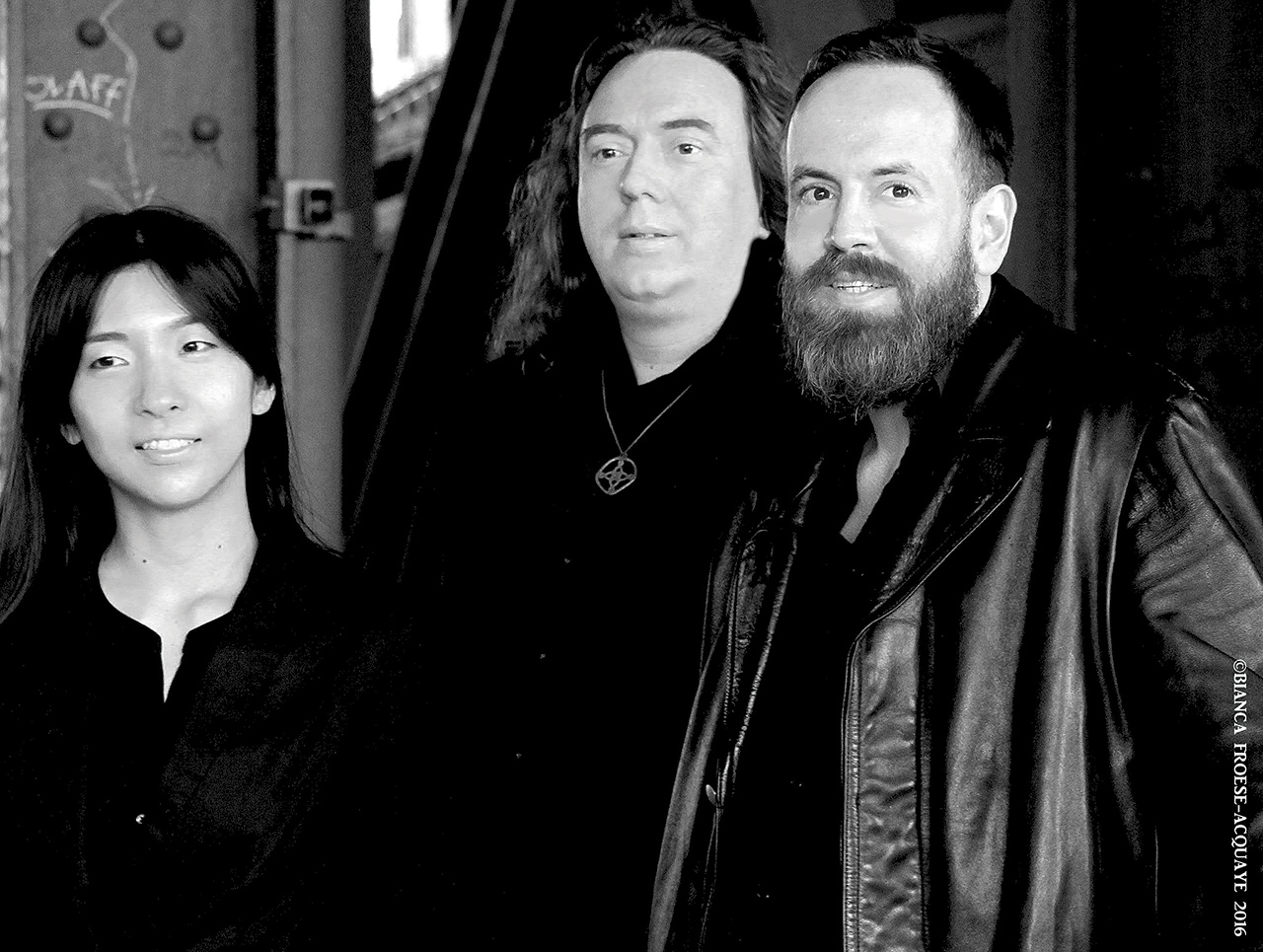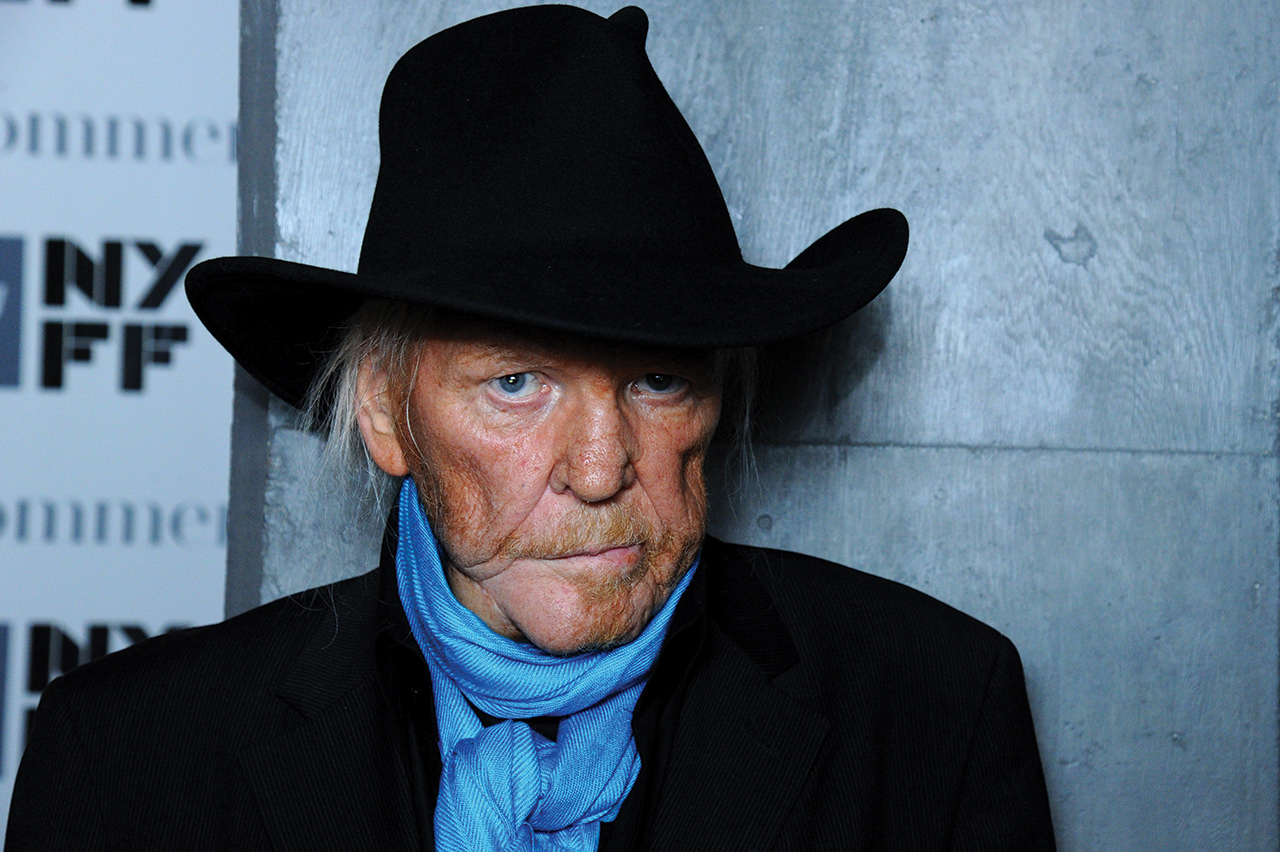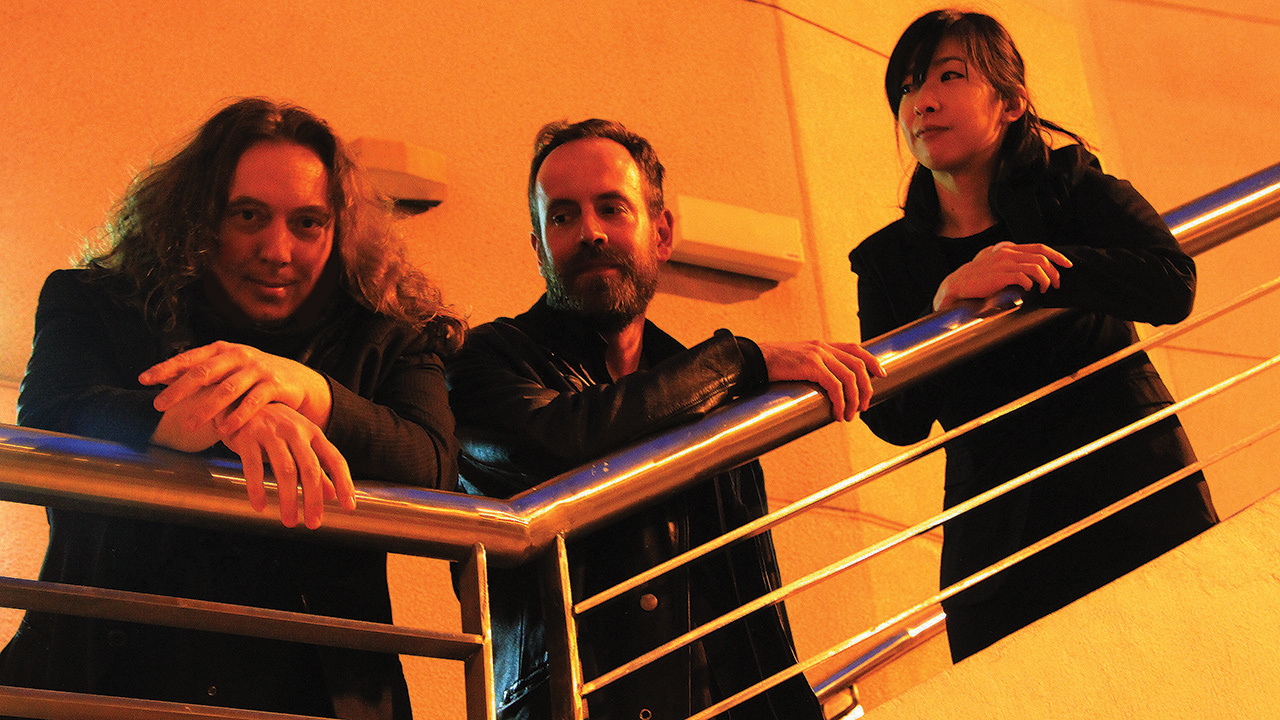Edgar Froese died on January 20, 2015. And for many, that should have signalled the end of Tangerine Dream, the band he’d founded and led since their inception in 1967. But here we are, in 2017, with the Krautrock icons having just released Particles, and with new album Quantum Gate due out in September. And the reason the pioneering electronic band are carrying on is due to… Edgar Froese! “I have to admit that I’d have been very hesitant to continue with Tangerine Dream after he’d died, but he insisted,” explains Thorsten Quaeschning, who joined the band in 2005. “It was an order from Edgar, and you never disobeyed him!”
“We would be lying if we said we don’t have any doubts, even now,” adds Ulrich Schnauss, who became a member of the Dream in 2014. “But the choice was made for us by Edgar. He wanted us to carry on and make his vision for the Quantum Years phase of the band happen. And we are committed to doing just that.”
However, both accept that it will be tough to win over fans who believe Froese was the creative force and that without him, there can never be a Tangerine Dream. This was reinforced in March 2015 when Jerome Froese, Edgar’s son, announced that Tangerine Dream were dead without his father.
“I know how he feels about the situation,” says Quaeschning. “But to be honest, I don’t think he has ever come to terms with not being in the band [he was a member from 1990 to 2006]. I got to know him very well several years ago, and I genuinely do think he was upset that he never had the chance to bring his own vision for Tangerine Dream to fruition. That’s what he was after, but it was never going to happen.

“I understand why he made the comment he did about the band being dead. But I met up with him last summer and he was OK about it all, but had a degree of desperation about the way in which he’d been sidelined, in his opinion. I have some sympathy with him because it cannot be easy to deal with such a famous and overbearing father.”
Schnauss, though, feels that the fans are at least prepared to give the new Tangerine Dream a chance. “All we ask is that they listen to what we are doing with open minds and then make their choice. If they don’t want to listen to anything more that we do, then that’s fair enough. But I really do believe that fans of the band will enjoy what we are striving to achieve. And so far, the reaction to the new Particles release, and also to our live shows, has been very positive.”
The new record is the latest in the ongoing Quantum Years series, which started in 2014 with Mala Kunia. But despite being a double CD, the band – who also feature Hoshiko Yamane, who joined in 2011 – don’t see it as either an album or an EP. “Edgar never liked the idea of our music being available on what would be conventionally called an album or EP,” says Quaeschning. “He called all of them ‘captives’, and they should last as long as it took to drink a cup of coffee. Mind you, in some cases, it was more than one cup, but the principle remains the same! I would think you’d get through three cups of coffee when listening to Particles.”
Of real interest on this new record is a cover of the theme from the successful Stranger Things TV series, which last year brought Tangerine Dream’s influence to the fore. The theme’s composers, Kyle Dixon and Michael Stein of electronic band S U R V I V E, have cited the German band as a major inspiration.
“What happened was that we were between gigs in Germany and Switzerland,” reveals Schnauss. “We were stuck on the tour bus with very little to do, so we decided to watch the whole of Stranger Things in one go. And it became obvious to us that the music had a lot of Tangerine Dream in there. And then Thorsten suddenly said, ‘It’s like being in a space-time continuum, isn’t it? So why don’t we do our own version of this music?’ That was it. We both agreed we should give it a go.
“We actually did two versions of the theme: one had a glitch in it, but we decided to release that on our SoundCloud page.”
So far, there’s been no feedback from the composers as to their opinion of the Dream interpretation. “We know of S U R V I V E,” Quaeschning says, “but we don’t actually know them. We feel our version is in the Tangerine Dream style, but pays respect to the original. I hope they’d agree with us.”
You might have also expected the band to have done an updated rendition of their own 1981 track Exit, which was featured in episode six of the series. However, they decided against doing this.
“We might think about it at a later date,” says Quaeschning. “But we would have to work out the best way to tackle it. Just doing a composition for its own sake is not our style. We have to think very carefully about the way in which we take iconic songs from our past and bring them up to date. We are all aware of how much they mean to the fans – and also to us.”
Particles has one new composition, 4:00pm – Session, a new studio rendering of Rubycon, plus performances of several renowned songs that were captured live in Germany last September. But while it’s definitely seen as part of the Quantum Years project, there’s also a feeling that it’s a holding operation, and might have been cathartic, letting the band record without Froese for the first time.
“In some ways, it was easy to get into the studio and record,” reveals Schnauss. “But that was on the technical level, where all we were doing was what came naturally to us. But there was also the emotional side to deal with, and that was tougher. You always think Edgar would be there to guide things, and when we realised that wasn’t the case, it was a blow. But I feel having the opportunity to get this out of our system, it made things a little more comfortable for the Quantum Gate sessions.”
The whole concept of Quantum Years is very much the brainchild of Froese, and Quaeschning is the first to admit that he has a limited understanding of what’s involved. “I don’t know much about quantum physics. It was an area that Edgar loved and knew a lot about. What quantum physics does is play with our ideas of reality. The way in which we perceive time and its passing is altered completely.
“Edgar was fascinated with what that meant. He was always looking for ideas to distort the way in which we look at our own reality, and this was what drove his vision for Quantum Years. So it’s very much his project, and most of what we’re doing is based on sketches and music he has left us. Edgar had worked out so much of this in advance, and it will carry on for a while yet.”
Most of Quantum Gate was done at Froese’s own studio in Austria, and this helped to give the band a feeling of having the man himself with them. “There were a lot of occasions when I was working out ideas in a room right next to the one where he’d have been busy were he still alive,” recalls Schnauss. “It was almost eerie, but you could honestly almost touch his presence, and because a lot of what we have done is based on rough music he had already sketched out, when you listen to this, it will remind you of Edgar.”

“I would say that a third to a half of what we’ve captured for Quantum Gate is down to what Edgar has left behind,” adds Quaeschning. “Obviously, the three of us who’ve been recording it have added in our own ideas, but for this one, Edgar is definitely a giant presence.”
On both Particles and Quantum Gate, the band have made a choice to go back to an earlier period in their band’s evolution.
“Edgar wanted us to return to an era when the sequencers and the electronics were more to the fore than has been the case for some while,” says Schnauss. “What we’ve done is, in one way, go backwards. But we are not doing it in any retro sense. We are taking on board the way technology has moved forward and used this to come up with sounds which are very contemporary.”
“Tangerine Dream have always been at the cutting edge of technology when it comes to developing our music,” insists Quaeschning. “All we are now doing is returning to a time when this was the way we worked – and it was what made the band’s reputation in the first place. We also love being improvisational. There’s not much of this to be heard on Particles, but when you listen to Quantum Gate, you’ll understand this has become part of our approach again. It’s the way Edgar saw us developing, by taking elements from the past and making them work in the 21st century.”
This year marks the 50th anniversary of one of the most important bands in prog history. But, in a twist to tradition, Tangerine Dream have chosen not to celebrate the occasion by visiting the past, but by looking ahead.
“We’ve had a lot of delays on getting this album finished,” explains Quaeschning. “There has been a lot of toing and froing trying to get things recorded, mixed and edited. And in the end we felt there was a need to set a deadline, and to lock in a release date. So we’ve gone for September 29 – it’s literally the 50th anniversary of when Edgar started the band. It’s a Tangerine Dream way of noting the landmark – not by looking back at what we’ve achieved, but forward to what we’ve yet to make happen.”
The Quantum Years collection is ongoing. Neither Schnauss nor Quaeschning can offer any notion of how long this part of the Dream sequence will continue, but both are committed to taking it to a logical conclusion.
“Edgar wanted us to see this through,” says the former, “and we will certainly do that. It might lead to another eight releases, I don’t know. We will carry on until it’s felt there are no other areas of Edgar’s vision on this concept which have to be explored.”
And Froese continues to guide the band through all of the myriad notes and ideas he left behind.
“I am still going through so much stuff he has left for us,” concludes Quaeschning. “He has ideas for songtitles, for album titles and the way things should be pieced together. Some are in such a primitive state that I don’t want to put them into the public domain as yet. But we owe it to his memory and inspiration to make it all happen. It’s a very important and decisive era for all of us.”
Quantum Gate is out on September 29 via PledgeMusic. For more information, see www.tangerinedream-music.com.
Peter Baumann: 'Music was the fourth entity in Tangerine Dream'

